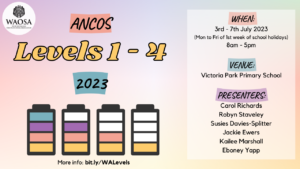ANCOS Level Courses
What are Level Courses?
Are you looking to improve your skills in music teaching with the Orff approach?
The Australian National Council of Orff Schulwerk (ANCOS) developed the National Teacher Accreditation Level Courses in Orff Schulwerk to provide quality training in Orff Schulwerk practices of music teaching.
There are 4 level courses in total, and are to be completed one at a time in order from 1-4. In 2023, WAOSA is planning to hold Level 1, 2, 3 AND 4 Courses.
The Levels include studies in Movement and Dance, Orchestration, Technique and Improvisation, Recorder, Vocal, Pedagogy and History of Orff Schulwerk.
How do they work?
Intent of Level Courses
The intent of Level Courses is to provide training in the history, pedagogy, media, repertoire, techniques, and teaching strategies that make up the Orff approach to music and movement education. The course is most suitable for individuals who are engaged in conducting group music activities such as teachers, therapists, community music makers who have experience in teaching or who are engaged to conduct such activities.
Length of Courses
Each Level Course includes a minimum of 36 hours face-to face instruction and one hour of instruction on the history and development of the Schulwerk approach.
Sequence of Courses
It is expected that participants will begin training at Level 1 and complete Level 2, 3 and 4 in sequence. Although some participants may feel they have a good knowledge of Orff Schulwerk from conference and workshop attendance, they must realise that those activities are not equivalent to a systematic study of all the aspects of Orff Schulwerk. Course organisers will scrutinise the training of participants who wish to begin training beyond Level 1 and make recommendations to those participants concerning where they should begin their training.
Certification
To gain a Certificate of Accreditation, participants must attend 36 hours of the course and successfully complete all assessment tasks. If this has not been achieved, a Certificate of Participation will be issued. Course coordinators have the discretion to organise alternate tasks and/or activities to help participants achieve a certificate of accreditation.
What do we learn?
Orchestration – Analysis – Literature
In a Level Course, the emphasis lies within the process of learning. The analysis a piece in the Orff approach, normally occurs once participants have learned to say, play, improvise, move and sing to the particular piece of music that exemplifies Orff theory. Cognition of musical theory occurs after participation in the work. The literature used should be a clear example of the theoretical content whether it is a pentatonic scale or a body percussion piece. The literature for all Level Courses should include traditional exemplars from the Brown Books as well as modern exemplars. In this section of a Level Course, the conventions of scoring for various media used by Orff teachers is also studied and demonstrated by the participants through assessment tasks.
Technique – Improvisation – Literature
In this section of a Level Course, the skills of performance are taught on body percussion, tuned and untuned instruments, through movement and with the voice. Improvisation is practiced in many ways using a variety of media is emphasised.
Pedagogy – Literature
Pedagogy is a cornerstone of the Orff Approach. The actual sequence of activities and the use of specific teaching techniques is learned. It is mandatory that Level Courses include peer teaching so that participants get feedback on their use of Orff teaching techniques. However, pedagogy pervades all subject areas and it is within those subjects that the participants experience good pedagogical practices and observe the components of common practice. Within the Pedagogy strand, participants are focused on particular techniques and given assistance in learning and demonstrating their facility in using those techniques.
Movement and Dance
The elemental music approach demands a close connection between music and movement. In this section, movement vocabulary is learned for creative expression as well as set dance forms. It is important that these sessions are conducted within a framework of safe dance practices.
Vocal
Tonal qualities that can be produced by the voice are featured in this section as well as practice in learning solfa. Improvisation plays a part in using the voice expressively as well as singing set pieces. Vocal work assists in the aural patterning of various tonalities used in Orff Schulwerk.
Recorder
The recorder plays an important role in Level Course training. It is the chief media for the learning of and reinforcement of pitch reading. Although there are no pre-requisite recorder competencies for Level 1, it is expected that participants will work to improve their recorder skills during and after the course. Before participants attempt treble recorder work in Level 2, they should be fluent in playing and reading descant recorder repertoire. The recorder family is true to the elemental style which Orff established in his instrumentarium and arrangements. These instruments are relatively easy to play but require knowledge of techniques and skills to enhance their tonal qualities.
What can I do to prepare?
The Level 1 Course highly suggest that participants to have a basic music theory knowledge, teaching experience and/or student teaching experience. Although it is possible to take part in the course without these skills and knowledge, the likelihood of attaining a Certificate of Accreditation is lessened.
Participants should be able to:
- Read and write the following note values and rests: ta, ti-ti and zah (crochet, quavers and crotchet rest).
- Clap rhythmic patterns using these note values.
- Read and write the notes in the treble clef – be familiar with the lines and spaces, bars, and bar lines.
- Understand time signatures 2/4, 3/4, 4/4 and how to read, write and perform rhythms for these.
Level 2, 3 and 4 courses require participants to understand basic harmony.
How do I register?
Click on the below image to go to the information page and follow the links from there.
Please send any further enquiries to: Contact@WAOSA.org.au.


